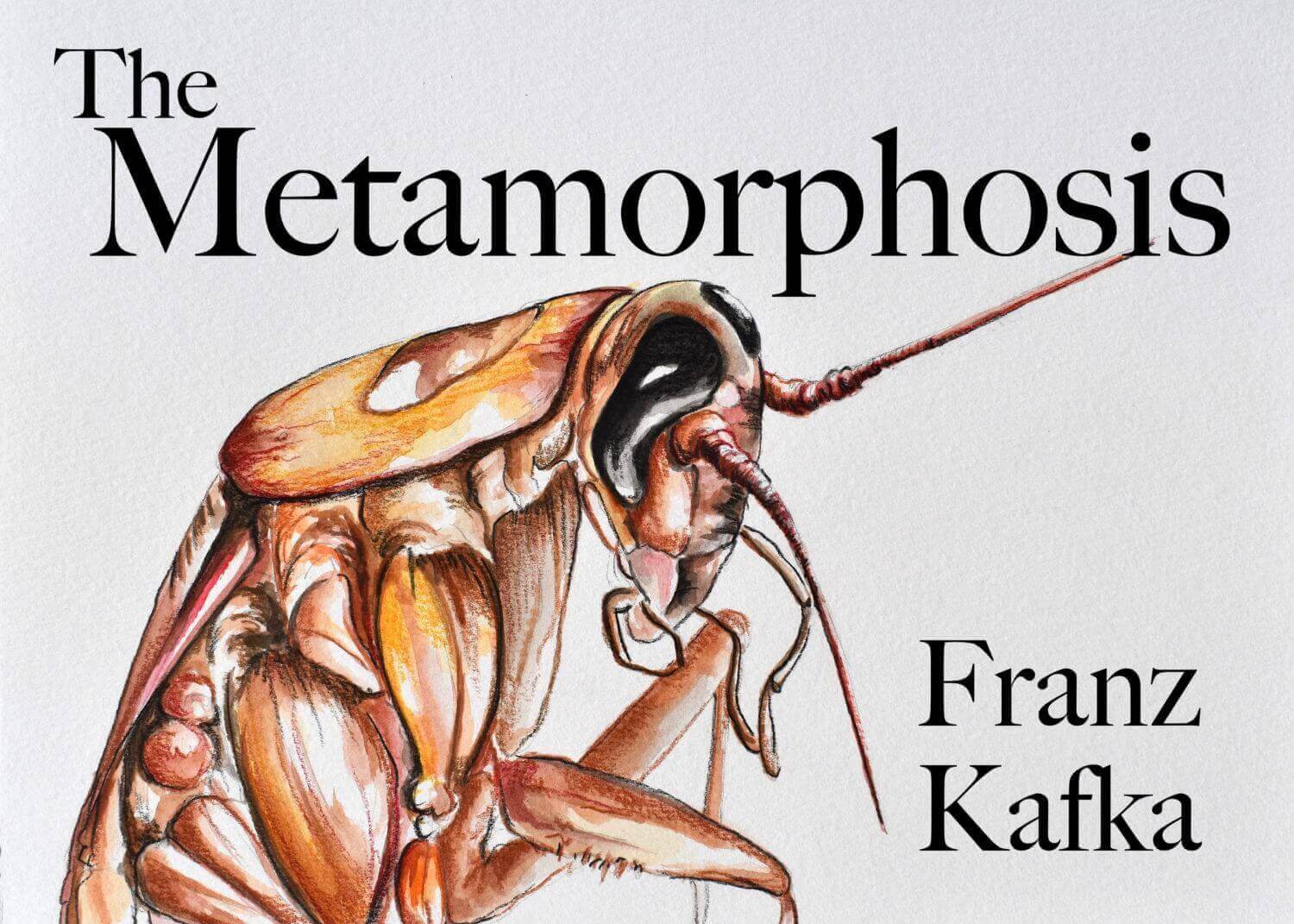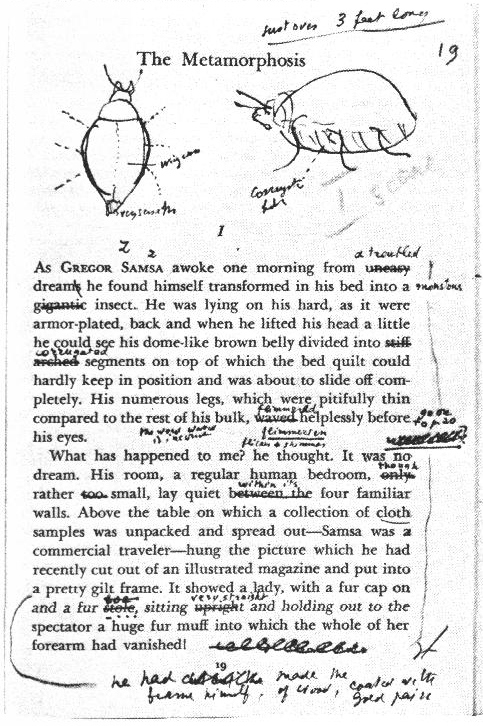

Kafka got acquainted with Milena Jesenska around that time, but their relationship ended in two years.
.jpg)
He had to take a break from his work and focus on healing. In 1917 he got diagnosed with tuberculosis, a deadly disease even today. ⚰️ Franz Kafka’s DeathĪfter coming back to Prague, Kafka spent a few years working and renting apartments to get away from his family.
#METAMORPHOSIS FRANZ KAFKA STUDY GUIDE TRIAL#
Shortly after, he began writing The Trial (1914), which he, unfortunately, did not finish. During that time, he wrote The Metamorphosis and other stories.He traveled to Venice in 1913, where he met Grete Bloch. He got engaged twice with her, but every time Kafka broke off the engagement. Max Brod, in particular, would play a critical role after Kafka’s death by publishing his novels for the world of literature.įranz Kafka had some affairs with women, which contributed to his literary work. Both writers admired Kafka’s stories and style. However, he was lucky enough to become close friends with Max Brod and Felix Weltsch, fellow Jewish writers, with whom he met many times to discuss literature. Later, in 1919 Kafka wrote the Letter to His Father, contemplating many aspects of their relationship. This abusive relationship could be found in The Metamorphosis (1912), where the main character Gregor Samsa also suffers from his father’s attitude. Kafka never managed to develop a healthy connection with his father. He felt a lot of pressure from his family, who expected him to become “the man of the house.” In particular, his authoritative father always pushed him to pursue a business career, not trying to understand his son’s passion for writing. Kafka did not have many personal relationships, as he lived with his parents and sisters and suffered from anxiety and depression. Consequently, he spent many sleepless nights writing his stories. He was unhappy with the job, as it was hard to combine his passion for writing with the long working hours at the office. They soon became dear friends for the rest of Kafka’s short life.Īfter graduating from the University in 1906 with a Doctorate of Law, Kafka was hired as a clerk in an insurance company. He was able to take a few literature courses and join a literary club. He picked chemistry but soon switched to law studies which appeased his father. Kafka attended the Charles-Ferdinand University of Prague, the oldest and one of the most prestigious universities in the modern-day Czech Republic. His father was heavily opposed to that, as he wanted his son to pursue a career in business and law. He became fascinated with literature and writing, taking much interest in it. Thus, Kafka’s personal rebellion and self-hatred increased over the years.

Franz Kafka’s calm personality and his slim figure could not stand up to Hermann. Kafka could not establish a good emotional relationship with his father, as the latter one was a hot-tempered man who imposed a lot of authority on the family.

His two younger brothers died in infancy, so he was the only boy in the family, living with his three younger sisters. Moreover, because of his Germanization and lack of religiousness, he was also an outsider to the Jewish community of his city.įranz’s character was also heavily influenced by his family and Hermann, in particular. He was a German-speaker in a Czech city while being disconnected from Germans due to his Jewish heritage. Hermann had a successful job in a retail store, while Julie was his assistant.įrom his early childhood, Franz became alienated from kids of his age. His parents, Hermann and Julie Kafka, belonged to the upper-middle class of Prague’s population. 👨💼 Franz Kafka’s Biographyįranz Kafka was born on July 3, 1883, to a Jewish German-speaking family in Prague, Austria-Hungary. Kafka’s writing style illustrates his emotions, as its absurdity and surrealism correlate with the anxieties of Europeans during that uncertain period. Most importantly, the Continent witnessed The First World War, which ended many Empires of that time. It saw the rise of new deadly weapons, ideologies, nationalist movements, etc. Kafka lived and worked from the end of XIXth to the beginning of the XXth century, a turbulent time for Europe.


 0 kommentar(er)
0 kommentar(er)
